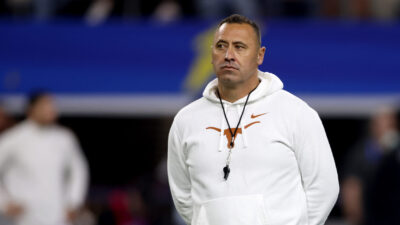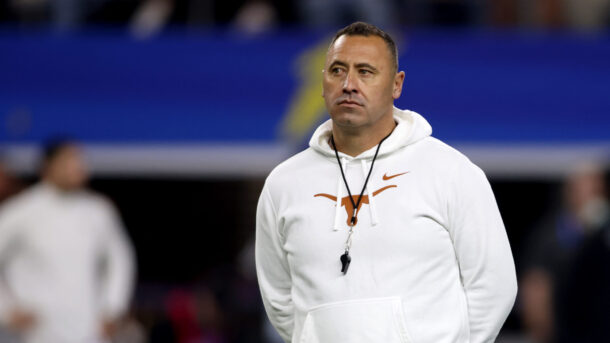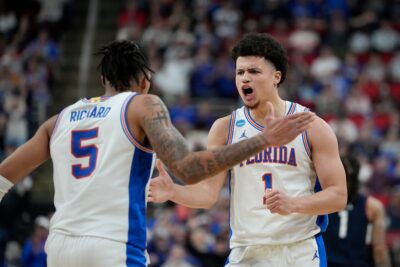Ad Disclosure
Tobacco Road is synonymous with college basketball excellence.
It’s a thoroughfare that runs through Chapel Hill and Durham, home to national powers North Carolina and Duke. Its starting point, however, can be found a few miles farther East at Reynolds Coliseum in Raleigh.
That’s where Everett Case arrived at NC State in the 1940s from that other basketball hotbed, Indiana, to catapult the Wolfpack into national prominence and spark a passion that burns brighter than ever to this day.
State’s early success under Case helped give birth to the ACC and numerous traditions that have become today’s norms, including the practice of cutting down nets to celebrate championship victories while beginning a legacy that includes 2 national championships, Hall of Fame coaches and players and some of the most iconic upsets in the history of the sport.
It’s a legacy that deserves a deeper dive. So let’s take a closer look into NC State’s storied basketball history.
How Many Times Has NC State Won The NCAA Tournament?
Entering the 2025-26 season, NC State has won the NCAA Tournament twice, in 1974 and 1983.
How Many Times Has NC State Been to The Final Four?
The Wolfpack have been to the Final Four 4 times under 4 different coaches: Everett Case in 1950, Norm Sloan in 1974, Jim Valvano in 1983 and Kevin Keatts in 2024.
How Many Times Has NC State Won The ACC Tournament?
The Wolfpack have won the ACC’s signature event 11 times. They won the first 3 in the conference’s history – in 1954, 55 and 56 – along with titles in 1959 and 1960 on their home floor, Reynolds Coliseum in Raleigh. They won the 1970 title in Charlotte, the 1973 and 1974 tournaments in Greensboro, the 1983 championship in Atlanta and the 1987 crown in Landover, Md. They added their most recent title in 2024 in Washington D.C., making history as a No. 10 seed by becoming the first team in ACC Tournament history to claim the championship by winning 5 games in as many days.
NC State’s National Championship Teams
Here’s a brief look at the Wolfpack’s 2 NCAA Tournament championship teams and how they conquered March Madness.
1974: 30-1, ACC regular-season champions, ACC Tournament champions, NCAA champion
1974 NCAA Tournament path: There were no seeds yet. NC State was ranked No. 1 in the final regular season Associated Press poll.
- Sweet 16: defeated No. 5 Providence 92-78
- Elite Eight: defeated No. 13 Pittsburgh 100-72
- Final Four: defeated No. 2 UCLA 80-77 (2 OT)
- Championship: defeated No. 3 Marquette 76-64
Season in review: Norm Sloan’s Wolfpack had a legitimate claim to a national title in 1973 after going undefeated. But because they were on NCAA probation, they were barred from the postseason. That served as motivation for the 1974 team, which returned most of its key players, including high-flying David Thompson, 7-4 center Tom Burleson and pint-sized point guard Monte Towe. Despite losing an early season neutral-site showdown with 7-time defending champion UCLA, State roared through the regular season and survived an overtime thriller with rival Maryland in the ACC Tournament final before earning a rematch with UCLA in the national semifinals. There, Thompson and the Wolfpack ended the Bruins’ reign with an overtime victory in Greensboro. Two nights later, they took down Marquette to become only the second ACC team ever to claim a national title.
1983: 26-10, ACC Tournament Champions, NCAA champion
1983 NCAA Tournament path: NC State was the No. 6 seed in the West Region.
Season in review: Jim Valvano’s Wolfpack were ranked as high as No. 16 in early January, but after losing 6 times in an 8-game span and losing shooting guard Dereck Whittenburg to a broken foot, State went into the ACC Tournament needing to win the champion so ensure its spot in the 52-team NCAA field. With Whittenburg returning to the lineup, they accomplished the goal by beating defending national champion North Carolina and second-ranked Virginia on the way to the title. The Wolfpack then cemented their legacy as the “Cardiac Pack” and perhaps the most unlikely champion in March Madness history by winning 6 games by a total of just 32 points, including a 54-52 upset of No. 1 Houston when Lorenzo Charles’ last-second dunk became one of the best buzzer-beaters in March Madness history.
Iconic moments
NC State has produced some of the most iconic moments in college basketball history. Here’s a brief look at some of the most memorable.
1974: The Greatest Game in ACC Tournament History
NC State and Maryland were arguably the 2 best teams in the nation that season. But unlike today when multiple teams from a conference can earn NCAA Tournament bids, only the champion was able to play for the national title in those days. So the ACC Tournament final between the Wolfpack and Terrapins was essentially an NCAA play-in game. It was a struggle from start to finish, with the State trio of Thompson, Burleson and matched basket-for-basket by Maryland’s Tom McMillen, Len Elmore and John Lucas. In the end, Burleson led the way with 38 points and 13 rebounds, and Towe sealed the deal with a pair of free throws in the final seconds of the second overtime to give the Wolfpack a 103-100 victory.
1974: End of the UCLA Dynasty
Bill Walton and the Bruins had ended the Wolfpack’s 29-game winning streak earlier in the season with an 84-66 win in St. Louis. But it was a different story when the teams met again 3 months later in the national semifinals. The game was played on State’s home turf in Greensboro. And this time, Thompson and his teammates weren’t about to be denied. They rallied from an 11-point second-half deficit, then dug themselves out of a 7-point hole in the second overtime to finish on a 13-3 run to win 80-77 and end UCLA’s run of 7 straight national championships,
1983: Survive and Advance
On the eve of NC State’s national championship date with top-ranked Houston, the great columnist Dave Kindred mockingly wrote that trees would tap dance and elephants would drive in the Indy 500 before the Wolfpack would find a way to beat Hakeem Olajuwon, Clyde Drexler and heavily favored Cougars. They are words history tells us Kindred lived to regret. Led by flamboyant coach Jim Valvano, the Cardiac Pack upset the nation’s top-ranked team to end the most incredible and improbable run in NCAA Tournament history. Whether State had to win the ACC tournament title to get an NCAA bid in the 48-team field is a debate that can never truly be settled. Suffice it to say, it makes for a better story to say that they did. Either way, the Wolfpack ran through a gauntlet of elite teams and Hall of Fame opponents – Ralph Sampson and Michael Jordan – to reel off 9 straight wins and cut down the nets in Albuquerque, NM as national champions. It’s easy to get lost in the details of how unbelievable each victory was but Survive and Advance certainly was the perfect description. And Charles’ dunk of a Whittenburg air ball (or was it a pass?) was the perfect ending.
2024: Return of the Cardiac Pack
Four decades after Valvano turned the phrase “survive and advance” into an art form by coming out of nowhere to win the ACC Tournament championship in 1983 before going on an even more improbable run to the national title, Kevin Keatts and another Wolfpack team channeled their inner Jimmy V and pulled off a postseason run that was every bit as miraculous. Needing to win the ACC Tournament as its only pathway to an NCAA bid, State won 5 games in as many nights, including victories against rivals Duke and North Carolina, to win its first ACC title in 37 years. But Keatts and his team weren’t done. Picking up on the momentum of their ACC Tournament triumph, they won 4 more games — including another against the Blue Devils — to advance all the way to the Final Four.
NC State’s Hall of Fame Coaches
Everett Case
Record at NC State: 377-134
Overall record: 377-134
NCAA Tournament titles: 0
Notable: Case is the man responsible for turning Tobacco Road into the basketball hotbed it has become. He came to NC State after World War II from his native Indiana, where he won 726 games in 26 seasons as a high school, and immediately turned the Wolfpack into a national power. In addition to his success on the court, which inspired rivals North Carolina and Duke to make similar upgrades to their programs, Case was one of the founding fathers of the ACC and is credited with numerous other innovations – including the practice of pregame introductions, postseason conference tournaments and curing down the nets to celebrate championships. Case was inducted into the Naismith Basketball Hall of Fame in 1982.
Jim Valvano
Record at NC State: 209-114
Overall record: 346-210
NCAA Tournament titles: 1
Valvano was an outstanding coach whose career was cut short by a scandal based on allegations that were eventually proven to be mostly false. He later built a second career as a beloved television analyst before his life was cut short by cancer at the age of 47. He won 2 ACC Tournament titles to go along with the 1983 national championship and took the Wolfpack to the NCAA Tournament 7 times in his 10 seasons. Valvano will always be remembered for running around the court looking for someone to hug after his team’s national championship victory in 1983 and for his “Don’t give up, don’t ever give up” speech at the ESPY Awards a decade later. He was inducted posthumously into the Hall of Fame for contributions on and off the court in 2023.
NC State’s All-Time Starting Five
David Thompson is generally acknowledged as the greatest player in ACC history. But who should join Skywalker in the Wolfpack’s all-time starting line? There are some tough choices to be made. But here goes:
Point guard: Chris Corchiani
He was the “Fire” portion of NC State’s Fire and Ice backcourt from 1987-81 because of his competitiveness and the emotion he showed on the court. The quintessential playmaking point guard, Corchiani set an NCAA record with 1,038 career assists in his 4 seasons with the Wolfpack. Although the mark was surpassed by Duke’s Bobby Hurley, he still ranks second on the all-time list. The 6-foot guard also scored 1,425 points and shot better than 41% from 3-point range while recording a school-record 328 steals.
Shooting guard: Rodney Monroe
What would Fire be without Ice? Monroe earned that designation because of his calm under pressure and a playing style that made scoring look easy. The 6-3 sharpshooter averaged 27 points per game on the way to earning ACC Player of the Year honors as a senior in 1991. He surpassed Thompson’s school career scoring record by scoring 2,551 points, a total that still ranks as the fourth most in ACC history. Along with Corchiani, he was selected as one of the 50 greatest players in conference history in honor of the ACC’s 50th anniversary.
Small forward: David Thompson
Known as “Skywalker” because of an incredible leaping ability that made him one of basketball’s first above-the-rim players, Thompson – with the help of point guard Monte Towe – is credited with introducing the alley-oop play to the college game. (Thompson caught and laid in the passes because dunking wasn’t allowed.) Thompson was twice named National Player of the Year by the Associated Press. He was a Naismith Award winner in 1975. He averaged better than 24 points per game in each of his 3 varsity seasons with the Wolfpack while scoring 2,309 points, shooting 55% from the floor and leading his team to a 79-7 record and a national championship.
Power forward: Thurl Bailey
Lorenzo Charles, Dereck Whittenburg and Sidney Lowe are the best-remembered members of State’s 1983 national champions. But Bailey was arguably the best player on that team. An athletic 6-11 low post presence, he averaged 16.7 points and 7.7 rebounds that season. His defensive prowess also helped hold Hall of Famer Olajuwon in check during the championship game. He was a 2-time All-ACC selection who finished his career with 1,495 points and 759 rebounds and was taken by the Utah Jazz with the 7th overall pick of the NBA Draft.
Center: Tom Burleson
Standing 7-4, from the mountains of Western North Carolina, Burleson was the first – and biggest – piece of the Wolfpack’s national championship puzzle in the 1970s, arriving a season before Thompson and Towe. Much more agile, with a softer shooting touch than most players his size, he averaged 19 points and nearly 13 rebounds per game while earning All-American honors. Burleson was named MVP of the ACC Tournament twice. His defense against UCLA’s Bill Walton was a key to the national semifinal victory that ended the Bruins’ run of 7 straight championships and set the stage for the Wolfpack’s first title.
Award-winning columnist Brett Friedlander has covered the ACC and college basketball since the 1980s.



